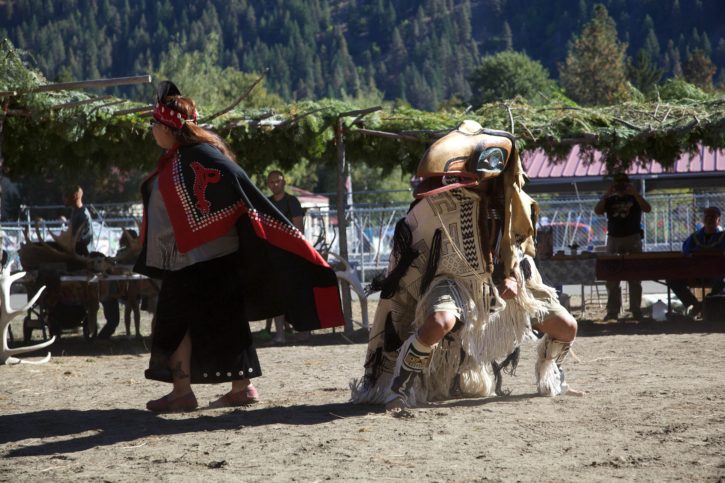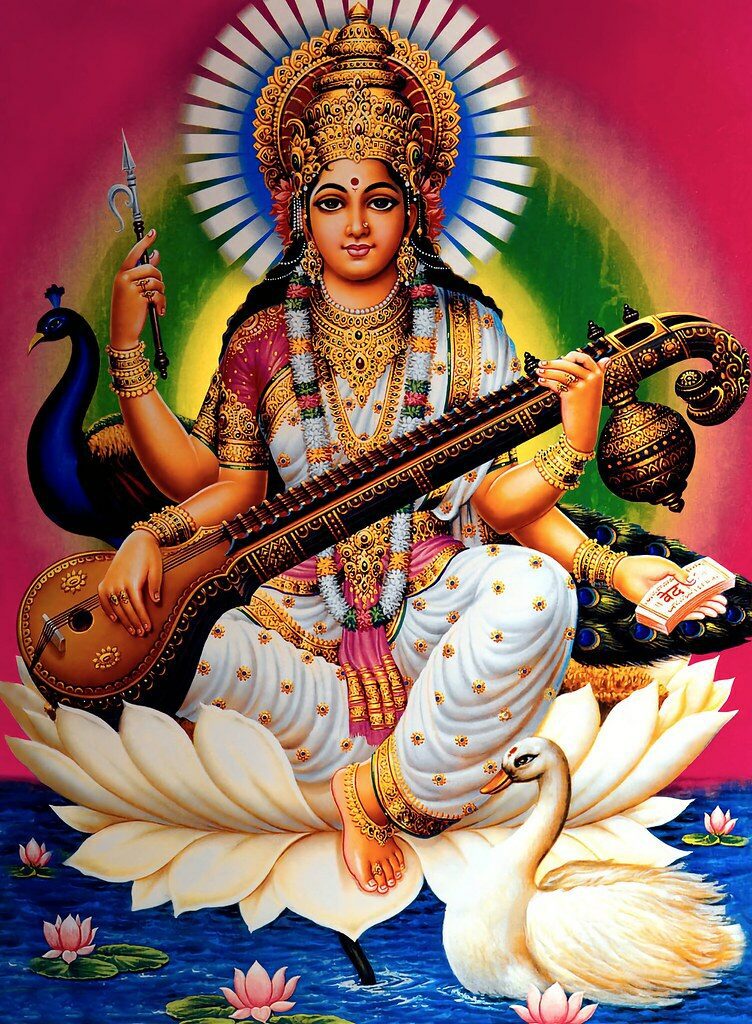“Tell me what you saw in the cavern,” White Buffalo Woman began.
Coyote described what he had seen. As he spoke, a smile spread on her face while the firelight danced in her eyes.
He told her of the fire with the mysterious backwards-facing dancers. He described the masks they wore. He told her of the dream of being dismembered by the two-leggeds. He told her that when he had tried to escape, the opening was no longer there, but a new way had opened on the other side of the cave. When he had finished speaking, she stirred the fire with a sharp stick as she spoke in reply.
“The two-legged tribe is called the “People of the Ashes.” They went on a quest to find fire for themselves, and they were able to find it. But in their greed, they wanted to keep it for themselves. They forgot to return and share it with the rest of their tribe. They jealously guard the secret of their fire. When they teach one of their tribe to make the fire, that person is sworn to secrecy on pain of death. They only teach other members of the tribe how to make the fire in secret rites and rituals, and they are not allowed to talk about it with people outside of their own tribe. That is why, when they saw you, they sought to tear you to shreds. They prize the fire, but they burn with jealousy at the thought of anyone else ever learning its secret. Because of this, their fire contains more heat than light.”
“They wear the masks because in their hearts they remember their other brothers and sisters that they left behind, and they secretly long to re-connect with them. The masks remind them of what they lost when they became greedy and wanted to keep the fire to themselves. Yet the masks also blind them, so that they cannot see the way out of the cavern. It has been sealed to them forever out of their own blindness. The masks they wear to remind themselves of their four-legged brothers and sisters are the very things that keep them from finding their way back.”

“When first they saw that they could not escape the cavern, they began to dance backwards, trying to re-trace their steps in order to find a way out. They forgot that the way forward does not lie in the past. By walking backwards, they are merely re-living their past mistakes. They are caught in a spiral dance with no end, and they shall never escape until they are able to sacrifice their selfishness. When they are able to do so, they will cast aside their masks and the way will be open to them again.”
As she spoke, she leaned over and began to stroke the fur on Coyote’s head.
“You were sent this vision of your own death to remind you not to tread the path that they have chosen. When you entered the cave, you were full of self-doubt. You did not think that you would ever be able to complete your journey. The vision of your death has changed that about you, for once you have faced your own death, what else can stand in your way?”
Coyote puzzled over her words. She watched him struggling with these new ideas.
“Do you not yet understand?” She motioned for him to stand, “If you think you cannot complete your journey, you will be correct. But if you think you can complete your quest, then that wisdom will be the very thing that allows you to succeed.”
She guided him to a still pond nearby. Although the snow was falling all around, the pond’s surface had not yet frozen. She watched the sparkling moonlight reflecting from its surface, and motioned for him to look into the water. “What do you see?” she asked.
He gazed into the glistening pool and saw a reflection of himself. His face was familiar to him, and yet not familiar. In that face he saw newfound wisdom. In his face he saw knowledge and confidence, and he knew that her words were true. With a renewed sense of purpose, he determined to go on. He was now willing to face whatever might come.
He looked up as White Buffalo Woman
bid him farewell, and he continued on his journey.
7.0 The Goddess on the Road
“For she is the incarnation of the promise of perfection, the soul’s assurance that, at the conclusion of the exile in a world of organized inadequacies, the bliss that once was known will be known again…”
– Joseph Campbell, The Hero’s Journey
The Road of Trials is harsh. Even with the ability to call on our Supernatural Aid for assistance, conquering unknown lands can be taxing. It is the portion of the journey where we are leaving our old selves behind and discovering who our new selves might be. The difficult part of the Road of Trials is that while we already know from experience what doesn’t work, we may not yet know what does work. This trial-and-error process can lead to second-guessing and self-doubt on the road to spiritual enlightenment. This is why it is a perfect time for a little extra help from the supernatural in the form of the Meeting with the Goddess.
The Goddess here isn’t necessarily an actual divine entity, although she can be. Since the heroes in most of the myths Campbell studied were heterosexual males, the Meeting with the Goddess represents the ideal partner for a heterosexual male. Since we’re talking about a spiritual and metaphorical level here, the Meeting with the Goddess symbolizes the idea of completeness and perfection, and not some actual physical entity. After having our former identities stripped away in the Belly of the Whale, and after our Initiation in the Road of Trials, the Goddess appears to us in ideal form with the promise of what could be, if we persevere. The Goddess represents perfect love. It is a love that is truly unconditional; a love that applies not only to others, bur to self as well.
7.1 Completeness and Perfection

Every human being on the planet has experienced occasional feelings of shame, guilt, blame, or inferiority. Such feelings are a natural part of the human condition. They are the source of many of the problems we experience with our relationships, careers, spiritual endeavors, and day-to-day living.
As human beings we’re conditioned to disown certain parts of ourselves. We don’t like to admit our feelings of shame or guilt, because doing so might mean that we are less than perfect. But how do we define “perfect?”
Try this sometime. Ask three of your closest friends or family members what their idea of the “perfect day” is. I’m willing to bet you’ll get at least three different answers. So if you do get three different answers to the question, “Describe your perfect day,” what does “perfect” really mean?
The obvious answer to this is that the term “perfect” is defined by the individual. This means that your idea of perfect might be completely different from my idea of perfect. Each of us is in charge of defining what “perfect” means to us.
The good news about this is that if “perfect” is self-defined, and if my own personal idea of what “perfect” means is causing me stress, then I am free to change it at any time. The way to do this is to realize that all of us have feelings of depression, stress or anxiety from time to time. All of us fail to live up to our own expectations for ourselves from time to time. We all have our moments of self-doubt. When this happens, we may choose to beat ourselves up for failing to be “perfect,” or we may choose to realize that as human beings, failing to be “perfect” is a natural part of existence.
By learning to love ourselves “warts and all,” we learn the art of radical acceptance of the True Self.
7.2 Shadow and Persona
The psychotherapist Carl Jung believed that all human beings contain within them the potential for all behaviors, both “good” and “bad.” According to Jung, the Persona is the mask we wear in our everyday lives. It is the face we present to others. The Persona represents who we think we are, and who we would like to be. The Shadow, on the other hand, represents all those traits we wish to suppress in ourselves. All our anger, fears, and negative emotions and behaviors are pushed down into the unconscious world of the Shadow and denied expression in the Persona.
Jung believed that the key to mental health was a process called individuation. Individuation involves striking a balance between the Shadow and the Persona. The Shadow represents the forces of chaos and darkness within an individual, and the Persona represents the forces of order and light. While the Shadow contains all of our darker and more negative emotions, it is also the seat of creativity. To deny the existence of one’s Shadow is to deny one’s own ability to be creative. However, allowing the Shadow to rule one’s life creates a situation where the individual is ruled by the forces of chaos and darkness. Jung saw psychoanalysis as the process by which we balance light and darkness within ourselves, thus achieving individuation.
Some moral, religious and ethical systems try to deny the existence of our darker impulses. These systems focus solely on the Persona. This is the face we present to others. The more such systems of thought and belief suppress the darker impulses in the Shadow, the more unbalanced the individual becomes. In such a case, the Shadow becomes a pressure cooker with no means to release the pressure. In extreme cases, the pressure cooker blows, leading to dysfunction and even psychosis.
Ecospirituality recognizes the need to balance Persona and Shadow. By acknowledging our darker impulses, we open the door to creating this balance, leading to individuation. Many people think that acknowledging our darker impulses means having to act on these impulses. Nothing could be further from the truth.
Suppose someone has done something that leads you to be angry with that person. Your first impulse might be the desire to retaliate in some way by returning anger for anger, or by hurting that individual in some way. Those who focus only on the Persona would attempt to suppress and deny this impulse, even though the desire to retaliate is a perfectly normal reaction to being angered. The angrier such a person becomes, the more he tries to suppress that anger, until he reaches boiling point and reacts explosively to the situation.
In Ecospirituality we seek to restore balance by acknowledging this impulse. Instead of swallowing our anger, we would recognize it as a darker impulse. But instead of returning anger for anger, we strive to express that anger in positive ways; perhaps by confronting the source of the anger and saying to the person, “You know, I really felt angry when you _________. I don’t want to be angry with you. What can we do to resolve this situation?”
In this way we are able to acknowledge the anger in constructive, rather than destructive, ways. The anger itself is not “bad;” it is merely a catalyst. It’s up to us to choose what to do with it.
7.3 Connecting with the Goddess
When we meet the Goddess on the road, it is symbolic of our own meeting with our own concept of perfection. In Ecospirituality, “perfection” means the ability to accept our darker impulses from the Shadow without feeling obligated to act on them. By recognizing and accepting these parts of ourselves without feeling obligated to do anything about them, we create the capacity to just be with those darker impulses, without acting on them, until they pass. When we are able to do so, we are able to integrate the Shadow and the Persona into a perfect, whole True Self. These integrative experiences are of the awe-inspiring variety that is the goal of ecospirituality.
Sometimes these experiences are described as reconnecting. The idea of reconnecting implies that we are connecting again to something that we somehow became disconnected with in the first place. How we became disconnected isn’t really as important as finding out how to reconnect ourselves. If there are barriers between ourselves and the things we wish to be connected to, we have the ability to remove those barriers. Ecospirituality allows connectedness by eliminating the barriers that keep us separate from our concept of the divine, from each other, and from our true selves.
So the way to have truly meaningful spiritual experiences (meetings with the Goddess) is to remove those things that keep us from connecting.
Take some time right now to think about the things that keep you from feeling connected. Make a list of these on the worksheet below before reading any further.

